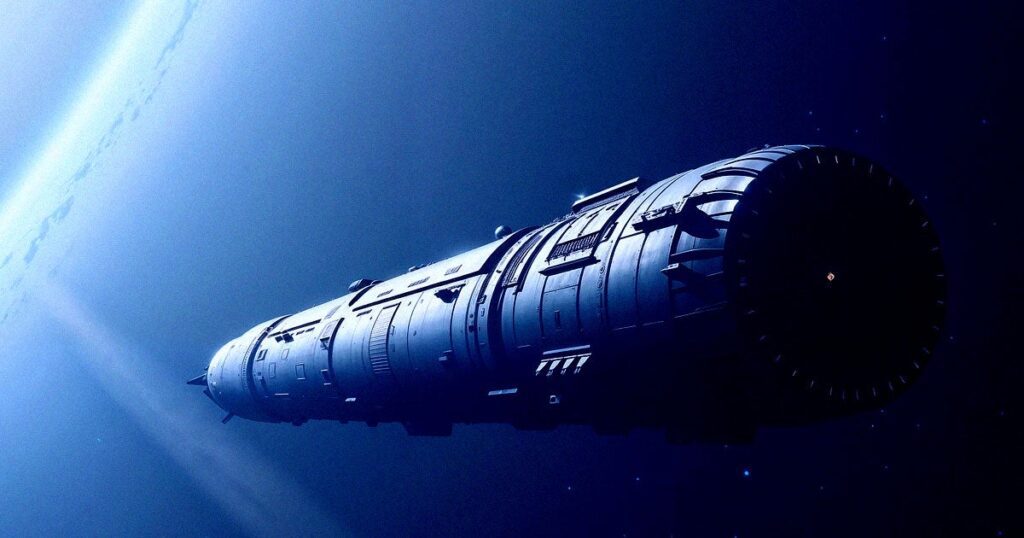The article discusses the ambitious design of a 36-mile spaceship named Chrysalis, aimed at transporting up to 2,400 passengers to Alpha Centauri. This project, developed by a team of engineers and recognized in the Project Hyperion Design Competition, features a rotating habitat that simulates Earth-like gravity. The spaceship has multiple layers designed for various functions, including food production, living spaces, and ecosystems. At its center is the “Cosmos Dome,” a large transparent structure that allows residents to observe space while in a controlled zero-gravity environment.
Chrysalis is intended as a generational ship, accommodating a stable population of approximately 1,500 people over three generations, with specific reproduction guidelines for residents aged 28 to 31. The ship will utilize artificial intelligence to enhance social cohesion and knowledge transfer among generations.
Despite its intriguing concepts, significant technological challenges remain, such as the practical implementation of fusion energy and building large structures in zero gravity. Nevertheless, the article emphasizes the importance of exploring such ideas for humanity’s potential future beyond Earth.
Source link


